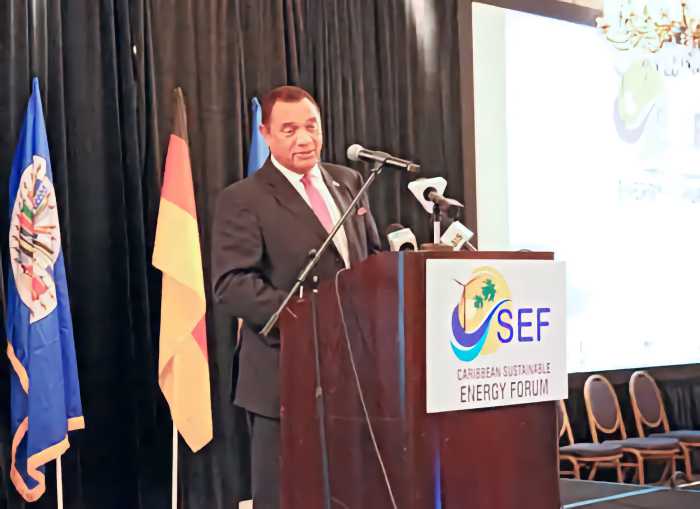Despite some resistance, Brooklyn Assembly Member Rodneyse Bichotte says she is still pushing for a special Haitian District in Brooklyn to be dubbed “Little Haiti.”
“Little Haiti is much more than a project” said Bichotte in a Caribbean Life interview. “It is the recognition of the value of a people who have historically been great contributors to this country.
“The revolutionary efforts of Jean Jacques Dessalines not only led to Haiti’s independence but also led to the expansion of US Territory in what we know now as the Louisiana Purchase,” added Bichotte, the daughter of Haitian immigrants, who represents the 42nd Assembly District.
“The concentration of Haitians in Flatbush, Brooklyn is amongst the highest outside of the country of Haiti, if not the highest,” she continued. “This will be an economic boon for the community as well.”
Bichotte, the first Haitian American from New York City to be elected to the State Assembly, said there are “plenty of benefits” to the establishing of Little Haiti in Flatbush, “especially during a time where the President of the United States uses his platform to blatantly disrespect Haitians and other African associated nations.
“He has removed TPS (Temporary Protected Status) for Haitians,” she said, referring to President Trump. “This a great way for the New York City to show the world and the nation that Haitians add a cultural, educational and economic significance to this country that cannot be ignored.”
But reports indicate that not everyone in the central Brooklyn agrees with the notion of establishing “Little Haiti.”
Last year, an area bounded by Flatbush, Church and Nostrand Avenues was designated the Little Caribbean cultural district, making a separate Haitian district redundant, the New York Times referred to some local leaders as saying last week.
But Bichotte said there were plans to name the area Little Haiti dating back more than a decade, according to the Times.
Now, with momentum fueled by anger over recent slights by President Trump, prominent members of the Haitian community in Brooklyn and New York State are hoping the City Council will officially designate Little Haiti in May, the Times said.
It said the designation, according to members of the nonprofit group Little Haiti BK, is “a recognition of the cultural role that Haitians have played in the city and the country, and a sign that the area’s Haitian community is coming-of-age.”
The resolution would also serve as a formal recognition by the City Council, which organizers hope will make it easier to work with tourism and business improvement officials, the Times said.
But even as the push for a designation grows, the area’s Haitian character is already eroding, the Times said, adding that gentrification and the movement of Haitians to the suburbs are triggering changes.
While the number of Haitian-Americans grew to 1.1 million in 2016, from 623,000 in 2000, the Times said New York’s place in the Haitian Diaspora has been falling.
In 2016, it said 20 percent of the country’s Haitians lived in New York, down from 30 percent in 2000.
In contrast, the Haitian population in Georgia and Pennsylvania more than tripled to over 30,000 people each in 2016, the Times said.
Still, it said Brooklyn now has more than 90,000 Haitian-Americans, giving it the third highest concentration in the country, according to an analysis by the Migration Policy Institute, a Washington, D.C.-based think tank.
“This is Haitian territory, but it’s changing,” Ricot Dupuy, director and station manager of Radio Soleil d’Haiti, New York’s first Haitian radio station, told the Times.
It said the proposal calls for naming an area bounded by Avenue H, Brooklyn Avenue, Parkside Avenue and East 16th Street the Little Haiti Business and Cultural District to “foster a strong sense of belonging, security, and pride among residents, businesses, nonprofits and community groups in Flatbush,” the group wrote in a letter to members of the City Council seeking their support.



























